Apple, under the leadership of CEO Tim Cook, has scored a significant victory in the tariff war, with smartphones exempted from a new 50% import tax from India, and semiconductor chips also avoided tariffs thanks to a commitment to make components in the US. But the bigger concern for Apple is its position in artificial intelligence (AI), an area where the company is said to be lagging.
Tariff success and Apple's navigation strategy
The Trump administration has raised tariffs on imports from India to 50%, but smartphones have been exempted from the new taxes.
This is a key victory for Apple ahead of the September iPhone launch season. At the same time, Apple will also avoid new tariffs on semiconductor chips because it has committed to manufacturing iPhone components in the US.
Mr. Cook announced a commitment to invest an additional $100 billion in the United States to produce iPhone parts domestically, which helped Apple gain support from the administration, as President Trump emphasized that Apple "is coming back to America."
While Mr. Cook estimates tariffs could cost the company $1.1 billion this quarter, analyst Gene Munster, managing partner of Deepwater Asset Management, believes tariffs are only a small part of Apple’s long-term problems, accounting for about 20%.
Analyst Runar Bjørhovde, at market analysis firm Canalys, and expert Nabila Popal, senior manager at market research firm International Data Corporation (IDC), also agreed that Apple's flexible supply chain and good relationship with the government will help the company "navigate against this threat."
Supply chain diversification: focus on India
Apple began shifting some of its supply chain to countries like India and Vietnam about five years ago, aiming to reduce its reliance on China, especially amid the COVID-19 pandemic and tariff threats. This diversification strategy, implemented years ago, allows the company to flexibly adjust to unexpected changes.
India is seen as the only option other than China that can assemble iPhones at a scale and cost competitive with the US market. Mr. Cook revealed that in the second quarter of 2024, most iPhones sold in the US will come from India.
Over the past nine years, India has grown its iPhone production from zero to about 14% of Apple's global iPhone production. TechInsights expects that number to double by 2025. The Indian government has been aggressively improving infrastructure and issuing incentives and subsidies to boost smartphone production.
States like Tamil Nadu and Karnataka have offered their own incentives to attract suppliers to Apple and other tech manufacturers, including building dormitories and facilities for workers.
Foxconn, one of Apple's biggest suppliers, is investing heavily in India, with plans to expand factories and hire tens of thousands of workers, mostly women.
Challenges and comparisons with China's manufacturing capacity
While India has made significant progress in assembling iPhones, especially high-end models like the iPhone Pro, the country still faces many challenges in catching up with China.
India is struggling with complex government regulations, patchy infrastructure, and a lack of experience in precision manufacturing. China is about 20 years ahead of the US and India in terms of scale, production, or infrastructure for high-tech companies, said Navkendar Singh of IDC.
China still accounts for about 80% of all iPhones assembled and has had a dense manufacturing ecosystem of supply chains, talent and infrastructure since before the first iPhone was launched in 2007. India has also had labor issues, with strikes over living conditions and food.
Despite this, Apple continues to diversify its supply chain, such as manufacturing camera components in Malaysia. Kevin O'Marah, founder of supply chain research firm Zero100, believes Apple could replicate key components of its Chinese supply chain in India within five years, although he stressed that "India is not the next China" but will be an important manufacturing hub.
The bigger concern: The AI challenge
While the tariff issues are seen as manageable, analysts say Apple's lag in AI is a bigger and more difficult problem to fix.
Apple has delayed a major upgrade to its Siri assistant, which was expected to offer more personalized answers and work across multiple apps, bringing the company up to speed with similar capabilities being developed by Google and OpenAI. Google has even used the delay to promote its products, hinting at Apple's delay in AI features.
Apple rivals like Nvidia (NVDA) and Microsoft (MSFT) have built impressive market capitalizations thanks to investments in AI, while Apple, primarily a consumer hardware company, has a different business model than companies that provide AI tools to businesses.
During Apple's earnings call, analysts repeatedly asked Cook about the company's AI strategy and what it means for future products. Cook acknowledged that AI is one of the most profound technologies in human life and pledged to increase investment in the field. However, Ted Mortonson, managing director and technology strategist at Baird, warned that Apple cannot afford to fall too far behind in the iPhone's AI capabilities, as this could give Android rivals like Samsung, Google, and Qualcomm an opportunity to get ahead.
According to experts, while Apple has skillfully navigated tariff challenges through supply chain diversification and strategic investments, the race for artificial intelligence is actually a more important battle, deciding the company's position in the future./.
Source: https://www.vietnamplus.vn/thoat-bao-thue-quan-lieu-apple-co-vuot-duoc-song-ai-post1054572.vnp


![[Photo] Cutting hills to make way for people to travel on route 14E that suffered landslides](https://vphoto.vietnam.vn/thumb/1200x675/vietnam/resource/IMAGE/2025/11/08/1762599969318_ndo_br_thiet-ke-chua-co-ten-2025-11-08t154639923-png.webp)







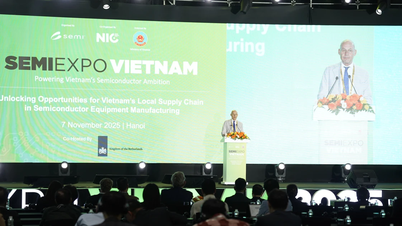






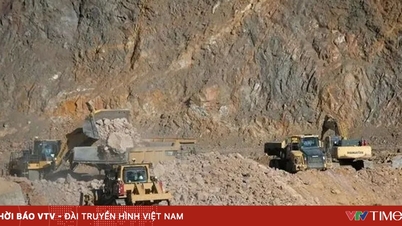




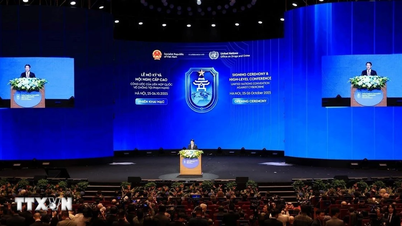









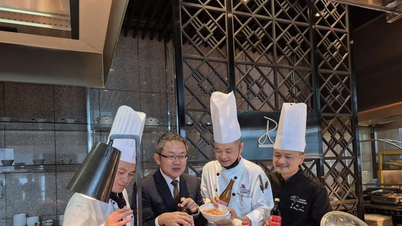
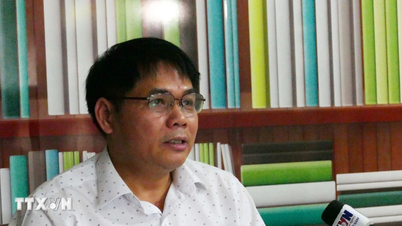



![[Photo] "Ship graveyard" on Xuan Dai Bay](https://vphoto.vietnam.vn/thumb/1200x675/vietnam/resource/IMAGE/2025/11/08/1762577162805_ndo_br_tb5-jpg.webp)








![[Video] Hue Monuments reopen to welcome visitors](https://vphoto.vietnam.vn/thumb/402x226/vietnam/resource/IMAGE/2025/11/05/1762301089171_dung01-05-43-09still013-jpg.webp)



























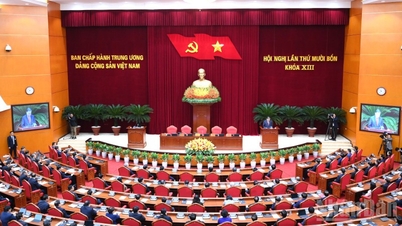



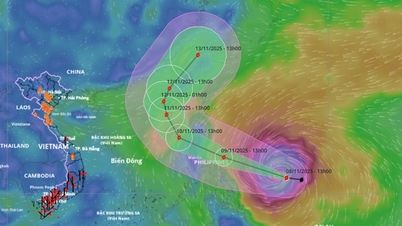

































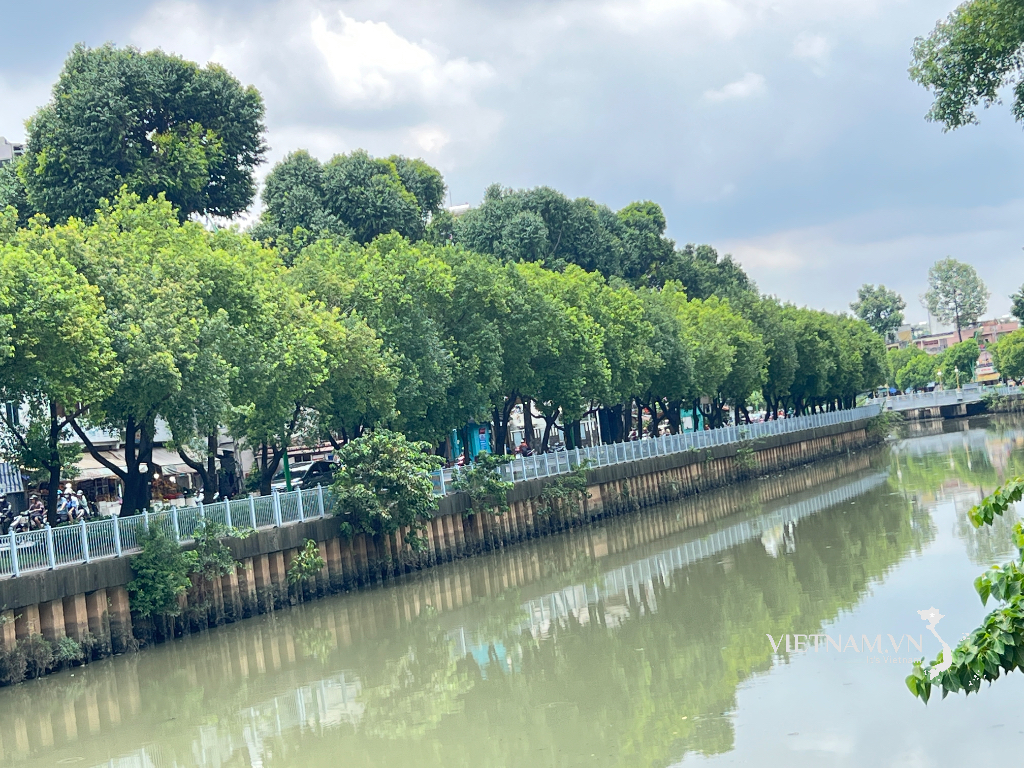

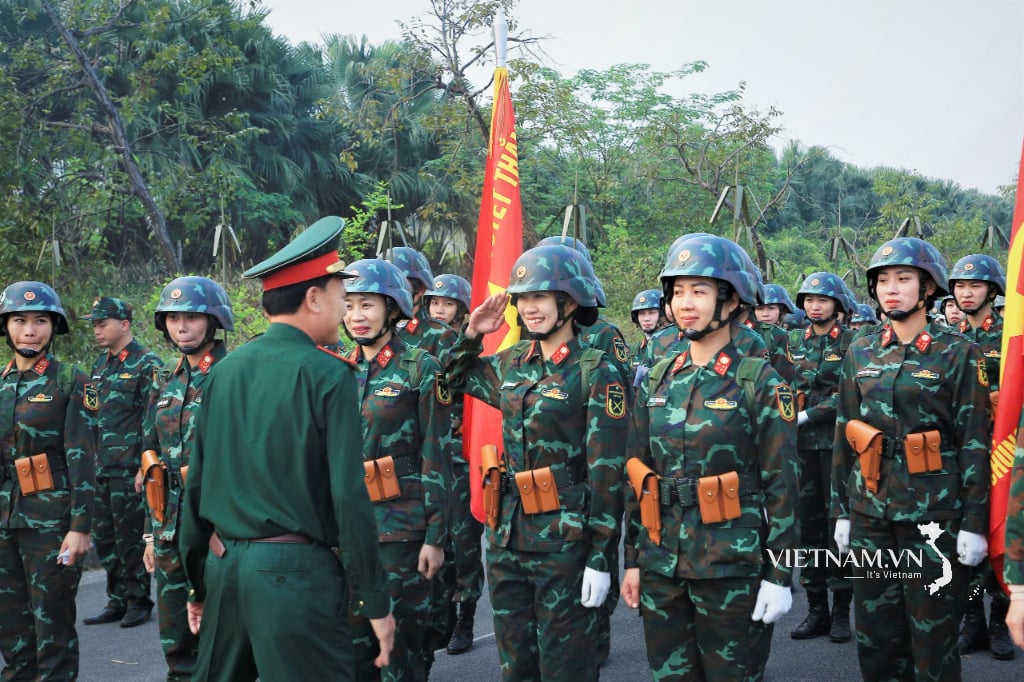

Comment (0)